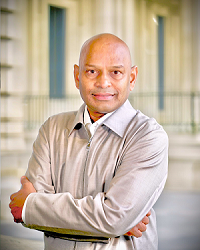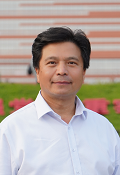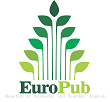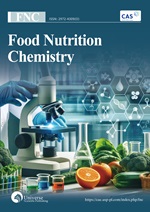IFCEST Plenary Talk ▏Academician Seeram Ramakrishna: Electrospun Catalysts for Hydrogen

Plenary Speaker: Academician Seeram Ramakrishna
Academician Seeram Ramakrishna is a world-renowned professor of cross-field at the National University of Singapore (NUS), which is ranked among the top 8 universities in the world. He is named among the World’s Most Influential Minds (Thomson Reuters) and Clarivate Highly Cited Researchers since 2014. Highest professional distinctions include an elected International Fellow | Academician of Chinese Academy of Engineering, China; Royal Academy of Engineering (FREng), UK; Singapore Academy of Engineering; Indian National Academy of Engineering, India; and ASEAN Academy of Engineering & Technology. He received a PhD from the University of Cambridge, UK, and TGMP from Harvard University, USA. He received advanced research experiences from MIT and Johns Hopkins University, USA and KIT, Japan. His academic leadership includes NUS’s Vice-President (Research Strategy); Dean of NUS Faculty of Engineering; Director of NUS Enterprise; and Founding Chairman of Solar Energy Research Institute of Singapore (SERIS). He pioneered nanotechnology in Singapore. He made seminal contributions in understanding and enhancing the biological, chemical, electrical, electronic, mechanical, and physical responses of nanofibers | nanomaterials. He advocates circular economy towards zero waste and decarbonization.
Title: Electrospun Catalysts for Hydrogen
Abstracts:
Hydrogen as an energy vector offers considerable potential compared to the other renewable energies in the decarbonization of human living, products, industries, businesses, and economies. Renewable resources are considered as panacea for the survival, sustainable progress, and wellbeing of humans. To realize the envisaged hydrogen economy, significant scientific innovations are needed across the entire hydrogen value chain i.e. generation | production, storage, transportation, uses, and end-of-life management. This lecture seeks to provide an overview of the knowledge gaps and key emerging trends. Scalable, cost-effective production, and earth-abundant material platforms are receiving greater attention. Designing and developing cost-effective, high-performance catalysts is crucial for advancing hydrogen production methods. This lecture seeks to share the progress made via electrospun catalysts, and opportunities and future directions. Various internal and external factors known to influence the photocatalytic activity also will be shared.




.jpg)
.jpg)

